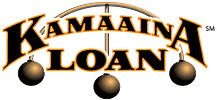Kamaaina Loan blog often grouses about the difference we perceive between how we see ourselves (and other pawnshops) and how the public sees us. Basically, the unpleasant guy played by Rod Steiger in “The Pawnbroker.”
So we were pleased to see reporter Jai me O’Neill in the Chico (Calif.) News & Review go out and see for himself. He, too, started with the Rod Steiger view, as he says,
me O’Neill in the Chico (Calif.) News & Review go out and see for himself. He, too, started with the Rod Steiger view, as he says,
I pitched this piece thinking it would provide the opportunity to write a hard-edged slice of Oroville noir focused on pawnshops where down-and-outers went from the Indian casinos to the pawnshops to hock their dead mothers’ wedding rings for a few pennies on the dollar, hoping to get enough money to return to the casinos and feed the slots once more, chasing the chimera of winning their money back so they could make the rent.
He was surprised.
Though it may be true that such scenarios get played out somewhere in the nexus between hard times and pawnshops, that wasn’t the story I found when I sat down to interview Danielle Batha, Chris Daniels and Gary Besser before business hours on a recent Thursday morning.
Instead, he found a pretty pawnbroker selling whole mammoth tusks and $5,000 Stetsons and not too much about busted gamblers hocking rings. Rather,
“I just don’t see that as a driving force,” she said. “More often, we see customers coming in who’ve had a win and they’re looking to go shopping. It’s not all tears and sad stories,” Daniels adds. “It’s like a curio shop.”
It’s quite a long piece, in fact the longest story about a pawnshop we’ve ever seen in a newspaper, and bouncy and positive, so of course we liked it.
As we have observed often, all pawnshops are different. At Kamaaina Loan, our pawnbrokers are not kept behind thick plexiglass windows like in Oroville.
“We’re putting out the message that we’re not victims, and not about to be victimized,” Daniels answered. “We want customers to know that this is a very safe and secure place, and that stuff they pawn with us will be here when they come back to get it.”
Lucky we live Maui. On Maui, the post office clerks also deal across an open counter. If you don’t travel, you won’t know how different things are on the Mainland.
Not everywhere, but in some places, the United States Post Office is so afraid of its customers that a sliding, bulletproof glass is raised for you to put your money through, then lowered, while a second sliding, bulletproof glass on the clerk’s side is raised for him to take it.
But the basic dealings are pretty much the same at pawnshops in the Wild West of Oroville and the mild west of Maui:
“One of the things I’ve liked about working here,” Daniels added, “is how often people are grateful for the help we’re able to offer them.”
Batha nodded. “Our women customers tend to be really sweet people,” she added. “Lots of the people we do business with are single moms trying to get to the end of the week. They’ll bring in jewelry or laptops. Sometimes it’s for just enough money to fill the gas tank.”



